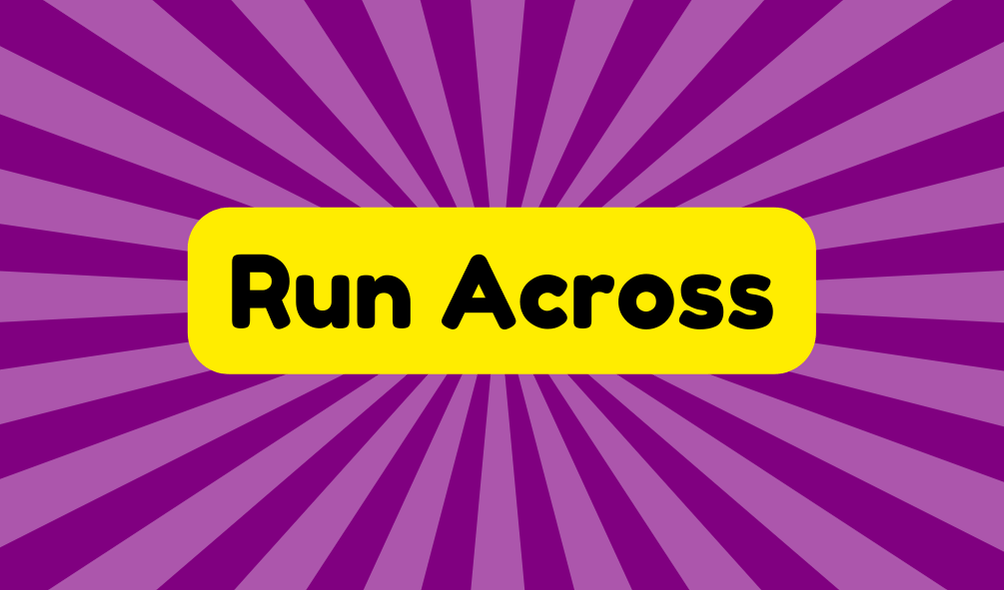"Run across" means to encounter something or someone unexpectedly. It first appeared in literature around 1880, popularized by Mark Twain, and reflects the essence of chance meetings. For instance, you might run across an old toy that sparks childhood memories. This phrase emphasizes the randomness of life, illustrating both pleasant surprises and potential complications. Common collocations include phrases like "run across a friend" or "run into trouble." Today, it's still relevant because genuine, spontaneous encounters offer value that digital connections often miss. You'll see how this ties into broader concepts of human interaction and discovery as you explore further.
Synonyms
When you think of the phrase "run across," several synonyms come to mind that capture similar meanings. These alternatives highlight the nuances of chance encounters and unexpected discoveries in daily life. Consider the following:
- Stumble upon: Suggests a serendipitous finding, like discovering a hidden gem.
- Encounter: Indicates meeting someone inadvertently, often inspiring new connections.
- Come across: Evokes the idea of finding something by chance, perhaps an old photograph.
- Happen upon: Captures the essence of chance meetings, leading to unexpected revelations.
While these synonyms enrich our language, they also remind us that not all encounters are positive. Recognizing the complexity of chance experiences can encourage a more thoughtful approach to the unpredictable nature of life.
Example of Sentences
Exploring the phrase "run across" through practical examples highlights its various meanings in everyday situations. You might remember some unexpected finds that brought back nostalgic moments. Here are a few relatable scenarios:
- You find a long-lost family heirloom tucked away in a forgotten cupboard.
- You stumble upon an old playlist that reminds you of high school memories.
- While cleaning, you discover a cherished letter from a valued friend.
- You encounter an old toy that sparks a flood of childhood memories.
These moments remind us of the unpredictability of life, often faced with surprising discoveries. While some might view these encounters as pure coincidence, others perceive them as delightful experiences worth reflecting on, illustrating how easily we can reconnect with our past.
Origin
The phrase "run across" has an intriguing history that traces back to its various literary origins. Initially, the related phrase "come upon" emerged in the works of Oliver Goldsmith in 1773, setting the stage for unexpected encounters in literature. Mark Twain introduced "run across" in 1880, capturing the essence of chance meetings during life's journeys. Surprisingly, its historical usage reveals an evolution from literary references to everyday speech, reflecting how joggers or travelers might accidentally meet. This connection between physical movement and unexpected encounters speaks volumes about human relationships. Yet, one must question whether our modern interpretation fully grasps its rich origins or merely skims the surface of its deeper contextual meanings, inviting reflection on our own encounters.
Collocations
Running across someone or something often leads to a range of collocations that enrich the phrase's meaning. Understanding these nuanced combinations helps deepen your comprehension. Here are a few notable examples:
- Run into trouble – Often denotes unexpected issues arising.
- Run across a friend – Indicates a chance encounter with someone you know.
- Run into debt – Refers to facing financial challenges, often unintentionally.
- Run across information – Implies discovering relevant data that you weren't specifically searching for.
These collocations illustrate how "run" intertwines with various contexts, shaping experiences. While the phrases seem straightforward, they carry different implications based on usage. So, pay attention to these nuances, as they greatly impact communication and understanding in daily life.
How to Use in Everyday Language
Many people use the phrase "run across" in their daily conversations without realizing its depth. It describes those everyday encounters that lead to unexpected discoveries. To make your usage of this phrase more authentic, consider these contexts:
| Context | Example Sentence | Usage Tip |
|---|---|---|
| Finding something | "I ran across an old diary today." | Reflects a nostalgic moment. |
| Meeting someone new | "I ran across an old classmate." | Reinforces social connections. |
| Stumbling upon clues | "I ran across hints in my research." | Shows how chance can guide you. |
Why Is It Still Relevant Today?
In an age dominated by digital connections and curated experiences, the phrase "run across" remains highly relevant because it encapsulates the serendipity of real-life encounters. Today's over-reliance on social media minimizes those unexpected moments of joy and learning. We often miss chances for genuine interactions, opting for filtered connections instead. "Run across" reminds us of the value in serendipitous encounters, highlighting the importance of real-life relationships. These chance discoveries can lead to fresh ideas, inspiration, and even lifelong friendships. As we navigate a fast-paced world, embracing the unpredictability that "run across" evokes can enrich our lives. It encourages us to step outside our comfort zones and seize opportunities that digital interactions can never replace.







